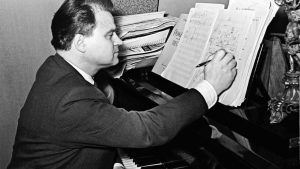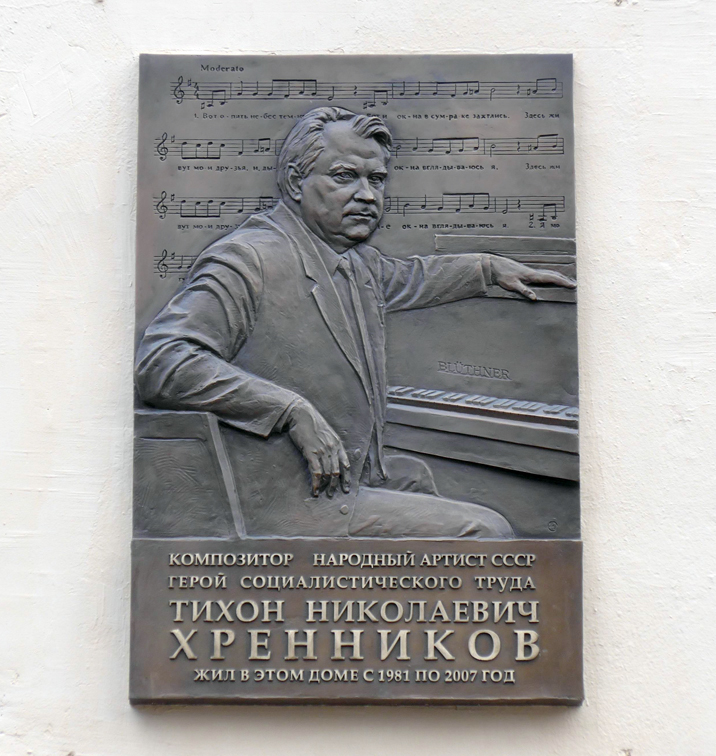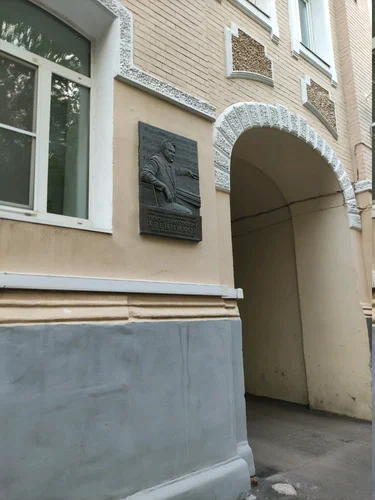Tikhon Nikolayevich
Khrennikov
1913-2007

Tikhon Khrennikov was a Soviet composer and public figure, the People’s Artist of the USSR, the Hero of Socialist Labour. He was the Deputy of the Supreme Soviet of the USSR of the 6th-10th convocations, the Deputy of the Supreme Soviet of the RSFSR of the 3rd-5th convocations. He was the Chairman of the Soviet-Italian Parliamentary Group of the Supreme Soviet of the USSR. He was the author of eight operas, five ballets, three symphonies, eight instrumental concertos, music for 30 films, numerous works of chamber, vocal, programme and theatre music. He was the First Secretary of the Executive Committee of the Union of Composers of the USSR (1948-1991). In 1936 he graduated from the Moscow Conservatory in the composition class of Vissarion Shebalin; he also studied piano with Heirich Neigauz. In the first years of his creative activity, Khrennikov composed a concerto for piano and orchestra, music for the play Much Ado About Nothing, sonatas for violin and cello. The first major stage work in the composer’s career was the opera Into the Storm, published in 1939. It is noteworthy that it was the first time that the figure of the leader of the world proletariat, Vladimir Lenin, appeared on the operatic stage. During the Great Patriotic War Tikhon Khrennikov wrote many songs, including Song About a Moscow Girl, Song About Friendship based on poems by Agnia Barto, Serenade, Farewell and many others. Since 1961 he taught composition at the Moscow Conservatory (professor since 1966). Symphonic music and compositions for musical theatre occupy a central place in Khrennikov’s work. As a student, Khrennikov created important original works, including the Concerto for piano and orchestra and the First Symphony. In the second half of the 1930s, Khrennikov became one of the leading representatives of Soviet music, whose major works vividly and embodied the most important events of the day. Khrennikov’s opera Into the Storm (performed in 1939) was a milestone in Soviet musical culture – one of the first successful experiments in translating the revolutionary theme into music; in this work, the image of Lenin was embodied for the first time on the operatic stage. Khrennikov used the melodic material of peasant and urban folklore to recount the events of the revolutionary period and reveal the complex fate of the Russian peasantry. A memorial plaque has been placed on the house where T.N. Khrennikov lived from 1981 to 2007.
Address: Moscow, Plotnikov lane, 10

